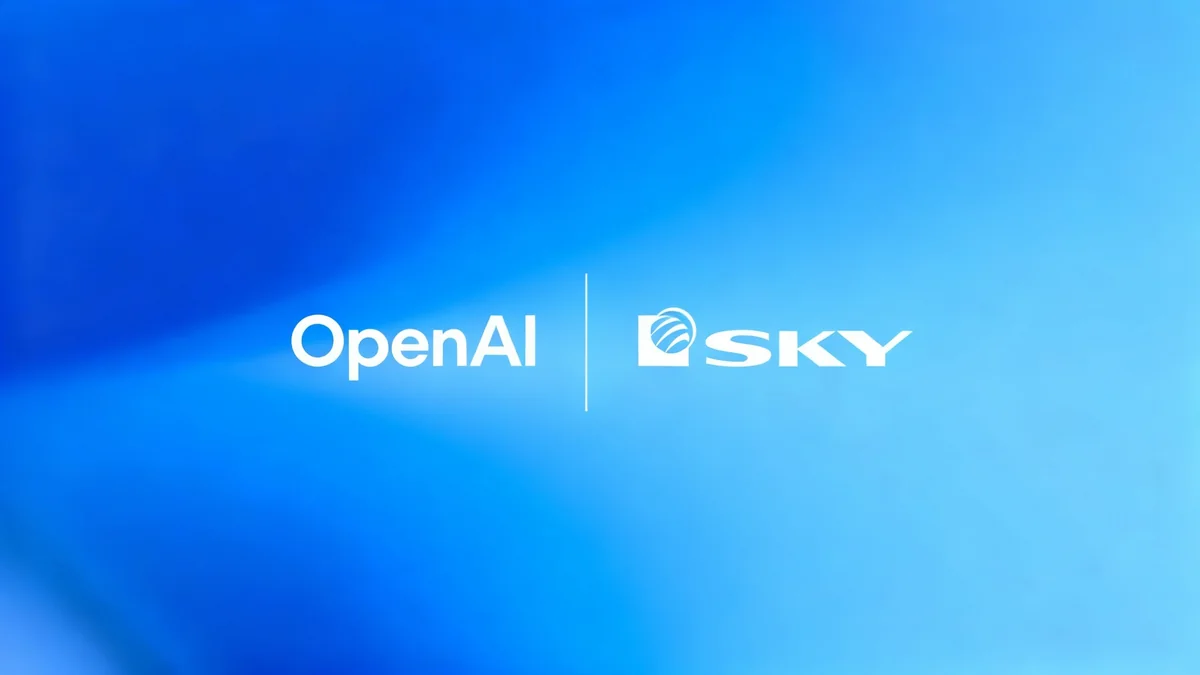OpenAI has acquired Software Applications Incorporated, the creator of Sky, a natural language interface for macOS. This strategic move aims to integrate Sky's deep operating system capabilities directly into ChatGPT, enhancing how users interact with artificial intelligence on their computers.
Key Takeaways
- OpenAI acquired Software Applications Incorporated, makers of Sky.
- Sky is a natural language interface for macOS, designed to integrate AI with desktop applications.
- The acquisition focuses on bringing Sky's macOS integration into ChatGPT.
- This move aims to make AI more context-aware and actionable within everyday tools.
- All members of the Sky team will join OpenAI.
Integrating AI Directly into User Experience
The acquisition, announced on October 23, 2025, highlights OpenAI's focus beyond pure AI intelligence advancements. The company emphasizes the importance of interfaces that understand user context and adapt to their intentions. This approach seeks to make AI a seamless part of daily computing.
Sky offers a powerful natural language interface specifically for Mac users. It allows AI to work alongside individuals in various tasks, including writing, planning, coding, and day management. A key feature of Sky is its ability to understand on-screen content and take actions within different applications.
Fast Fact
The acquisition was led by Nick Turley, VP & Head of ChatGPT, and Fidji Simo. It received approval from OpenAI's independent Transaction and Audit Committees.
Accelerating ChatGPT's Vision
OpenAI's goal is to evolve ChatGPT from a prompt-response system into a tool that actively helps users complete tasks. Integrating Sky's macOS capabilities is a significant step towards this vision. The move is expected to bring AI more directly into the software tools people use every day.
"We're building a future where ChatGPT doesn't just respond to your prompts, it helps you get things done. Sky’s deep integration with the Mac accelerates our vision of bringing AI directly into the tools people use every day." —Nick Turley, VP & Head of ChatGPT
This statement underlines the strategic importance of making AI a more proactive and integrated assistant rather than just a reactive conversational agent.
The Evolution of Computer Interaction
The creators of Sky founded their company with a vision for more empowering and intuitive computers. They believed that large language models (LLMs) could finally bring this vision to fruition. Sky was developed as an AI experience designed to overlay the desktop, assisting users in thinking and creating.
Ari Weinstein, Co-Founder and CEO of Software Applications Incorporated, expressed enthusiasm about joining OpenAI. He stated that the move would allow their vision to reach hundreds of millions of people globally. This indicates a shared belief in the potential of deeply integrated AI.
Background Information
Artificial intelligence progress has often focused on raw computational power and model size. However, the practical application of AI in daily life heavily relies on effective user interfaces. This acquisition signals a shift towards improving the accessibility and utility of advanced AI models.
Future Integration and User Impact
The acquisition means that all members of the Software Applications Incorporated team will join OpenAI. This ensures continuity and leverages the expertise behind Sky's development. Users can expect future updates as OpenAI works to integrate Sky’s capabilities into ChatGPT.
This integration could lead to a more context-aware ChatGPT that understands what is on a user's screen. It might also enable the AI to perform actions across different applications without requiring explicit commands for each step. This represents a significant leap in desktop productivity and AI assistance.
Did You Know?
An investment fund associated with Sam Altman, a key figure at OpenAI, held a passive investment in Software Applications Incorporated prior to the acquisition.
What This Means for Everyday Users
For the average user, this acquisition promises a more seamless and powerful AI experience. Imagine an AI that can not only draft an email but also pull relevant data from a spreadsheet on your screen and schedule a meeting in your calendar, all based on a single natural language request. This level of integration could redefine productivity.
The focus on macOS integration suggests that Apple users might be among the first to experience these enhanced capabilities. However, the broader goal is likely to develop a versatile AI interface that can eventually adapt to various operating systems and platforms, making AI assistance more ubiquitous.
- Enhanced Productivity: AI could automate multi-step tasks across applications.
- Contextual Understanding: AI will better understand what users are doing on their screens.
- Natural Interaction: Users can interact with AI using everyday language for complex operations.
- Seamless Integration: AI will feel less like a separate tool and more like an inherent part of the operating system.
This strategic move by OpenAI underlines the growing competition in the AI space to not only build the most intelligent models but also to create the most intuitive and useful interfaces for them.





